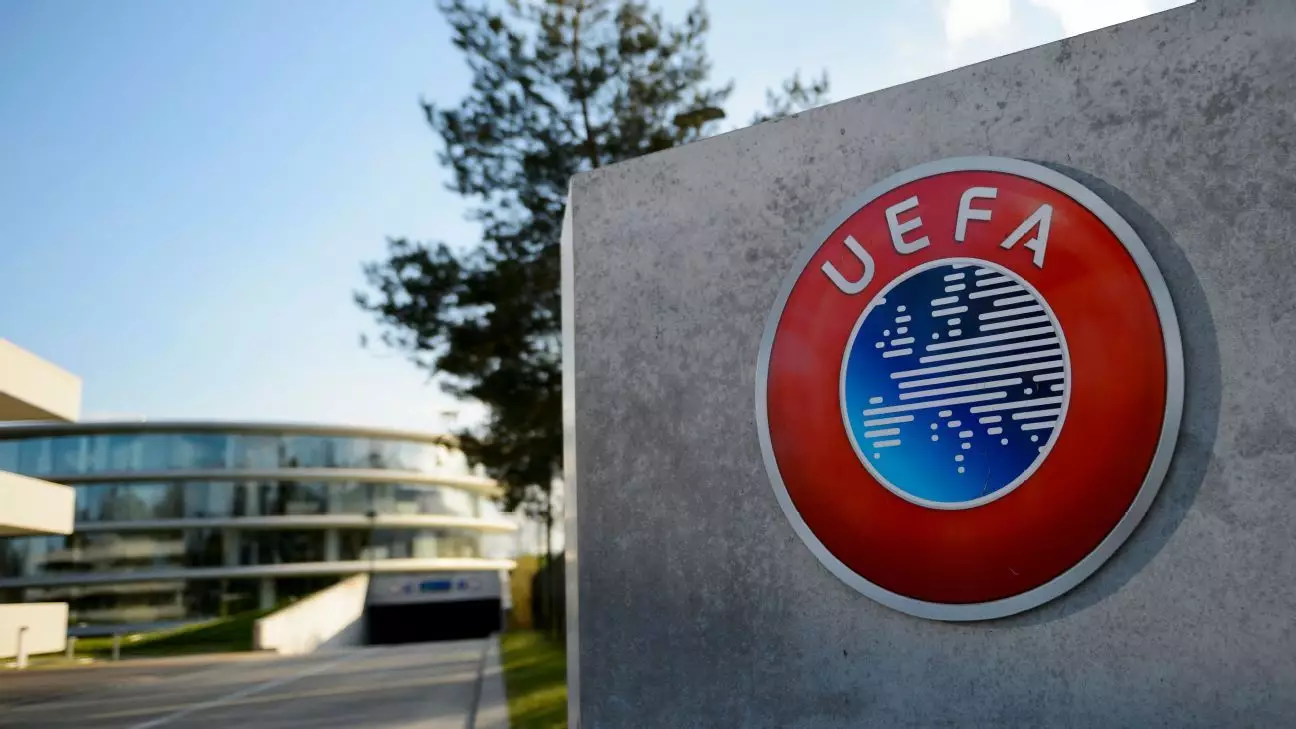In the world of elite European football, financial conduct has become a mirror reflecting the true stability—and sometimes the lack thereof—of powerhouse clubs. Recent sanctions imposed by UEFA highlight a troubling paradox: while clubs like Chelsea and Barcelona flaunt astronomical spending and seemingly impressive performances on the pitch, their financial integrity remains precariously unbalanced. These fines, especially Chelsea’s record-breaking €31 million penalty, do more than penalize; they expose the underlying fragility of a system driven by high-stakes investment and questionable accounting practices.
The hefty fines serve as both a wake-up call and a reflection of the systemic flaws embedded within the financial management of these giants. Chelsea’s fine, the largest ever for a single club in one season, signals a shift in UEFA’s approach—an acknowledgment that glamour on the field cannot mask reckless spending. The club, under American ownership since 2022, has been embroiled in controversy over its financial dealings, notably involving the questionable sale of hotels and hefty transfer expenditures. Despite claims of upward financial trajectory, the club’s infractions—failing to break even and overspending on squad costs—lay bare a fundamental discord: spending beyond means to chase short-term glory, risking long-term stability.
Barcelona’s €15 million fine further underscores how the financial fair play system aims to reign in clubs’ excessive losses, which if unchecked, threaten the competitive balance of European football. The complex assessment UEFA employs reveals a nuanced attempt to hold clubs accountable, not merely through straightforward sanctions but by incentivizing fiscal discipline. Yet, the reality remains that these fines are more symbolic than corrective; they highlight a deep-rooted culture where spending is often prioritized over sustainable growth, driven by the desire for trophies and commercial dominance.
The Myth of Financial Virtue in a Culture Obsessed with Winning
It is tempting to view these sanctions as isolated incidents. However, they are symptomatic of a broader crisis—that of a football industry obsessed with immediate success, often at the expense of financial health. Chelsea, for example, has spent lavishly in the transfer market under Boehly’s ownership, disregarding the prudence that UEFA advocates. The club’s history of fines—initial penalties during Roman Abramovich’s tenure, followed by sanctions in the current era—illustrates a recurring pattern of rule-bending, signaling a need for harder oversight.
The ferocity with which UEFA disciplines clubs indicates its recognition that financial misbehavior threatens the very fabric of the sport. Yet, it also raises questions about enforcement effectiveness and whether the current measures are merely deterrents or if systemic reform is truly on the table. The valuation of future fines based on potential qualification for tournaments also reveals UEFA’s strategic weaponization of financial sanctions, aiming to incentivize clubs to stay within bounds but often falling short in fostering genuine fiscal responsibility.
Meanwhile, clubs facing penalties—such as Aston Villa and Lyon—are proof that financial irregularities span across tiers of European football, transcending the glamour clubs. Aston Villa’s overspending during a campaign in the Conference League, and Lyon’s ongoing legal battles over its turbulent finances, illustrate the widespread nature of financial mismanagement. These cases underscore that financial stability is fragile and that even seemingly well-managed clubs are vulnerable to the temptations of short-term success.

